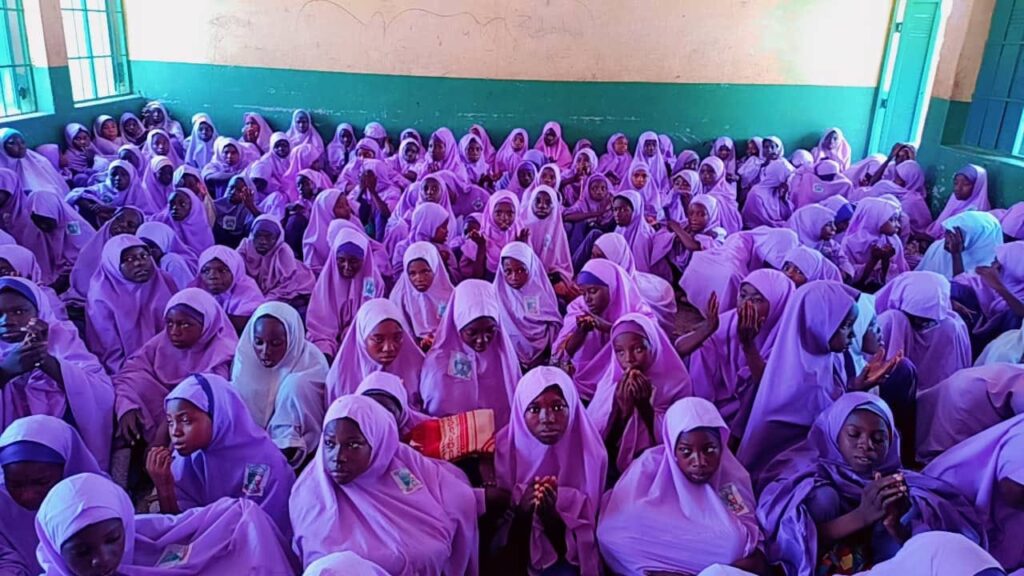Nasiru Yusuf Ibrahim
Disturbed by the challenges faced by pupils and students, the residents of Tsakuwa town under Dawakinkudu local government area of Kano state have mobilised resources to complement government’s effort of addressing shortage of teachers in public schools.
KANO FOCUS reports that the community under the umbrella of Tsakuwa Mufarka has employed and deployed sixteen teachers to nine public schools in the town.
In an ideal situation, government is solely responsible for running public schools. While the federal government is taking care of the tertiary institutions, state and the local governments are accountable for effective running of primary, secondary and state owned institutions in their respective domains.
Governments at the three tiers are expected to provide structures, teachers and other staff as well as maintenance of all facilities in public schools to give the citizens education. They are also to pay salaries and other entitlements of teachers and other staff in such schools.
However, these vital functions are gradually been eroded at all levels due to inadequate resources coupled with increased population.
The community, KANO FOCUS observed that has a about nine schools, but they lack teaching and learning facilities to make them complete schools.
However, it was observed that children of Tsakuwa community are lagging behind educationally. This is because successive governments are not paying the needed attention to the schools in the area. The community has to take action to keep the schools alive after all attempts to get government intervention have failed.
Government Girls Junior Secondary School Tsakuwa, KANO FOCUS gathered has a population of about 1,300 students at present. The students are being handled by only three teachers, a principal and two classroom teachers. Thus, only three teachers are under the employment and pay roll of the government.
However, the community had through Tsakuwa Mufarka, employed the services of three more teachers to complement government employees.
Despite this effort, KANO FOCUS observed that eight other schools in the town are offering skeletal services courtesy of inadequate teachers, chairs and desks.
Members of Tsakuwa Mufarka education committee and leadership of PTA of Alhaji Danjummai Primary School
The chairman of education committee, Tsakuwa Mufarka Development Association Malam Abdullahi Wagadi also told our reporter that officials from the state and local authorities have been visiting the town and noting all the problems affecting it with promises to address them, yet nothing has been done to that effect.
This is in addition to the monthly reports to the authorities at the top of which is always the problem facing the schools, which includes, inadequate teachers, lack of furniture amongst others.
Wagadi said the students could not use the available toilets in some schools because of lack of water.
The chairman of Tsakuwa Mufarka Alhaji Tasiu Alhassan, said that their schools are facing serious challenges and that efforts to make government come to their aid have failed.
The chairman said the schools are lacking of adequate teachers and other basic infrastructures.
“The teachers are not enough and government has refused to deploy more teachers to our schools, so the community has to employ sixteen additional teachers and has been paying them for three years now.”
He pointed out that some years ago, the secretary of the local government education summoned leaders of Tsakuwa Mufarka for a meeting where they tabled the matter, yet government has not addressed their concern.
He said they will continue to encourage parents and guardians to enroll their children in school despite the challenges they are facing in the community.
Some of the teachers who are under the community payroll told KANO FOCUS that their work has been marred by lots of challenges, such as overcrowding of pupils, lack of text books and other facilities to aid them in teaching.
One of them said most times the teachers have to provide the books to use in teaching from their meager salary of N10, 000.
“Because we don’t have enough teachers in the school, a class that is supposed to be handled by three teachers is being handled by one teacher,” she said.
They said that they accepted to do the work because of lack of employment bedeviling the country.
However, they are pleading with the government to confirm their employment through the State Universal Basic Education Board (SUBEB) as well as provide the necessary infrastructures that will help them in giving their best to the pupils.
Kano Focus


